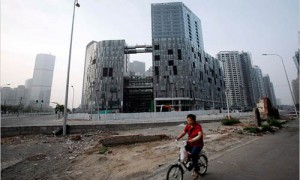 Chinese officials are blaming the speculators for soaring property prices and have announced to build 36 million affordable homes over the next five years. There are already widespread concerns about China’s booming property market and the threat it poses to the country’s expanding economy.
Chinese officials are blaming the speculators for soaring property prices and have announced to build 36 million affordable homes over the next five years. There are already widespread concerns about China’s booming property market and the threat it poses to the country’s expanding economy.
“China would spend $200 billion on an affordable homes and social housing scheme,” Qi Ji, Deputy Housing Minister of China said in Beijing.
The Chinese government has taken various steps to dampen the property market. These include raising interest rates, increasing the down payment required on second homes and restricting the rights of foreigners to buy property. Two Chinese cities are now imposing sales tax on property deals.
While the measures have slowed the northward graph of Chinese property market, there is apprehension of bouncing back yet again. In March 2010, urban housing prices had shot up by 11.7 per cent year-on-year, according to figure released by national bureau of statistics. December 2010, however, saw the lowest increase in more than a year. It still stood at 6.4 per cent.
Bears on the financial market have already warned that China is the grip of a property bubble, predicting that when it bursts it could knock the economy off track and in a chain reaction hamper the global economic recovery.
More than a year ago, hedge fund king Jim Chanos described the China realty sector as “Dubai times 1000 or worse.” Though few see it in quite such exaggerated terms, there are very many in the market who echo the concern. Experts, however, say the situation is controllable, pointing to Beijing’s careful monitoring of the situation.
“It won’t be easy for prices to fall in the near future, but the bubble will burst eventually,” said Yi Xianrong, a real estate researcher at the Chinese Academy of Social Sciences.





